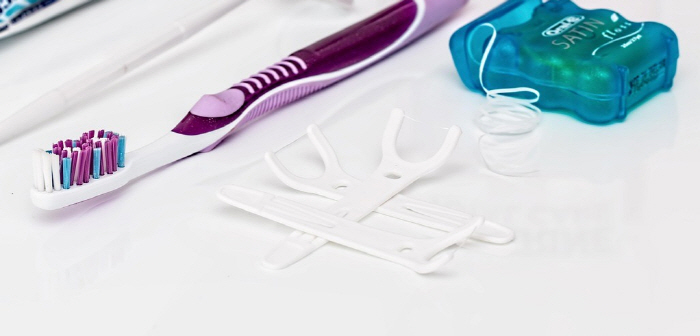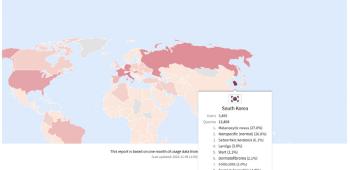Use of dental floss after brushing teeth lowers the risk of ischemic stroke by 20%
May 23, 2025
|
A joint research team at the University of South Carolina Medical School in the United States presented the results of the study at the '2025 Conference of the European Stroke Society (ESOC)' held in Helsinki, Finland. Ischemic stroke refers to a condition in which brain neurons are unable to function due to decreased blood flow in the brain due to obstruction of blood vessels in the brain.
The present study suggests that preventive oral care may have a significant impact on stroke prevention by contributing to reduced vascular inflammation and infection.
The researchers surveyed more than 6,200 participants for oral hygiene habits such as dental floss use, brushing frequency, and regular dental visits.
They were then compared and analyzed with inflammatory biomarkers such as periodontal disease, tooth decay, C-reactive protein (CRP), and interleukin-6 (IL-6).
As a result, it was found that people who regularly use dental floss had a 20% lower risk of ischemic stroke.
On the other hand, brushing alone did not show a significant effect on reducing the risk of stroke, and when dental floss use and regular dental visits were combined, oral health was improved and the incidence of periodontal disease and tooth decay was reduced.
In addition, those who practiced brushing, using dental floss, and regular dental visits all had lower IL-6 levels.
IL-6 is a cytokine (immune protein) involved in the inflammatory response, and blood levels increase in various situations such as infection, trauma, and inflammation. High IL-6 levels can be associated with various diseases such as immune system abnormalities, lymphatic tumors, cardiovascular diseases, diabetes, and cancer.
In addition, people who regularly visited the dentist were found to have low C-reactive protein levels.
C-reactive protein (CRP) is a protein that is produced in the liver and increases the concentration in the blood when an inflammatory reaction occurs in the body or there is tissue damage. It mainly identifies acute inflammatory responses and is used as a criterion for observing the diagnosis and treatment response of inflammatory diseases.
Professor Souvick Sen of the University of South Carolina who led the study said, `Oral health does not just protect teeth, it can reduce chronic inflammation and lower the risk of stroke," he stressed. The researchers suggested that in the future, it is necessary to further emphasize the importance of oral care in public health strategies and consider including oral health care guidelines in stroke prevention programs.
This article was translated by Naver AI translator.














